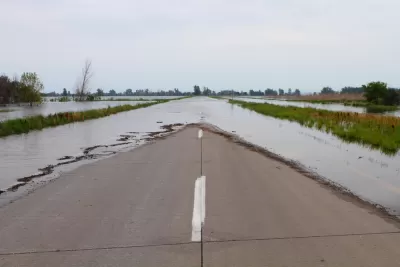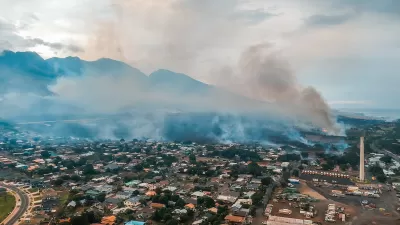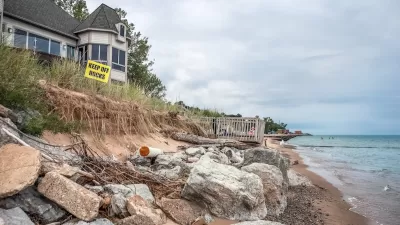In a wide-ranging editorial, Mark Allen argues for strategies that may help communities cope with climate disasters as they grow more frequent.

"We must work with some urgency to preserve the agricultural land close to our major cities from encroaching development, while partnering with farmers to better manage the landscapes they steward," Mark Allen writes for the Green Left Weekly. Allen sees the desire to build new infrastructure, instead of improving on what already exists, as a major problem for the environment. "The main emphasis has to be on making what we already have work better for us, while embracing new ideas and discriminating in favour of public housing," Allen argues.
Allen also expresses concerns about population growth. He sees foreign aid (from Australia, where he is based) to boost education and health as a strategy to deal with the issue, because fertility rates tend to drop when countries become richer and healthier.
"Our approach to population policy should be dictated by compassion, understanding that properly directed foreign aid is the most socially equitable and ecologically sustainable first step," Allen argues.
FULL STORY: Urban and regional planning for the climate emergency

Planetizen Federal Action Tracker
A weekly monitor of how Trump’s orders and actions are impacting planners and planning in America.

Map: Where Senate Republicans Want to Sell Your Public Lands
For public land advocates, the Senate Republicans’ proposal to sell millions of acres of public land in the West is “the biggest fight of their careers.”

Restaurant Patios Were a Pandemic Win — Why Were They so Hard to Keep?
Social distancing requirements and changes in travel patterns prompted cities to pilot new uses for street and sidewalk space. Then it got complicated.

Platform Pilsner: Vancouver Transit Agency Releases... a Beer?
TransLink will receive a portion of every sale of the four-pack.

Toronto Weighs Cheaper Transit, Parking Hikes for Major Events
Special event rates would take effect during large festivals, sports games and concerts to ‘discourage driving, manage congestion and free up space for transit.”

Berlin to Consider Car-Free Zone Larger Than Manhattan
The area bound by the 22-mile Ringbahn would still allow 12 uses of a private automobile per year per person, and several other exemptions.
Urban Design for Planners 1: Software Tools
This six-course series explores essential urban design concepts using open source software and equips planners with the tools they need to participate fully in the urban design process.
Planning for Universal Design
Learn the tools for implementing Universal Design in planning regulations.
Heyer Gruel & Associates PA
JM Goldson LLC
Custer County Colorado
City of Camden Redevelopment Agency
City of Astoria
Transportation Research & Education Center (TREC) at Portland State University
Camden Redevelopment Agency
City of Claremont
Municipality of Princeton (NJ)





























